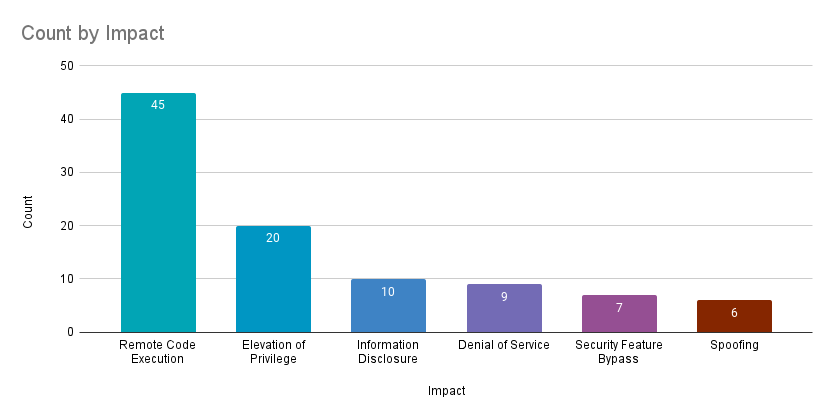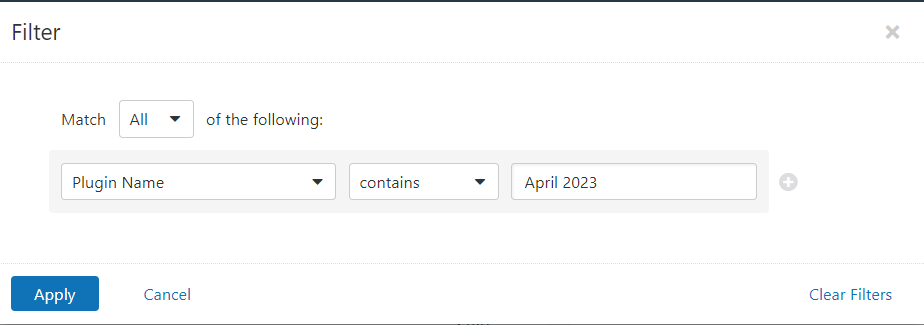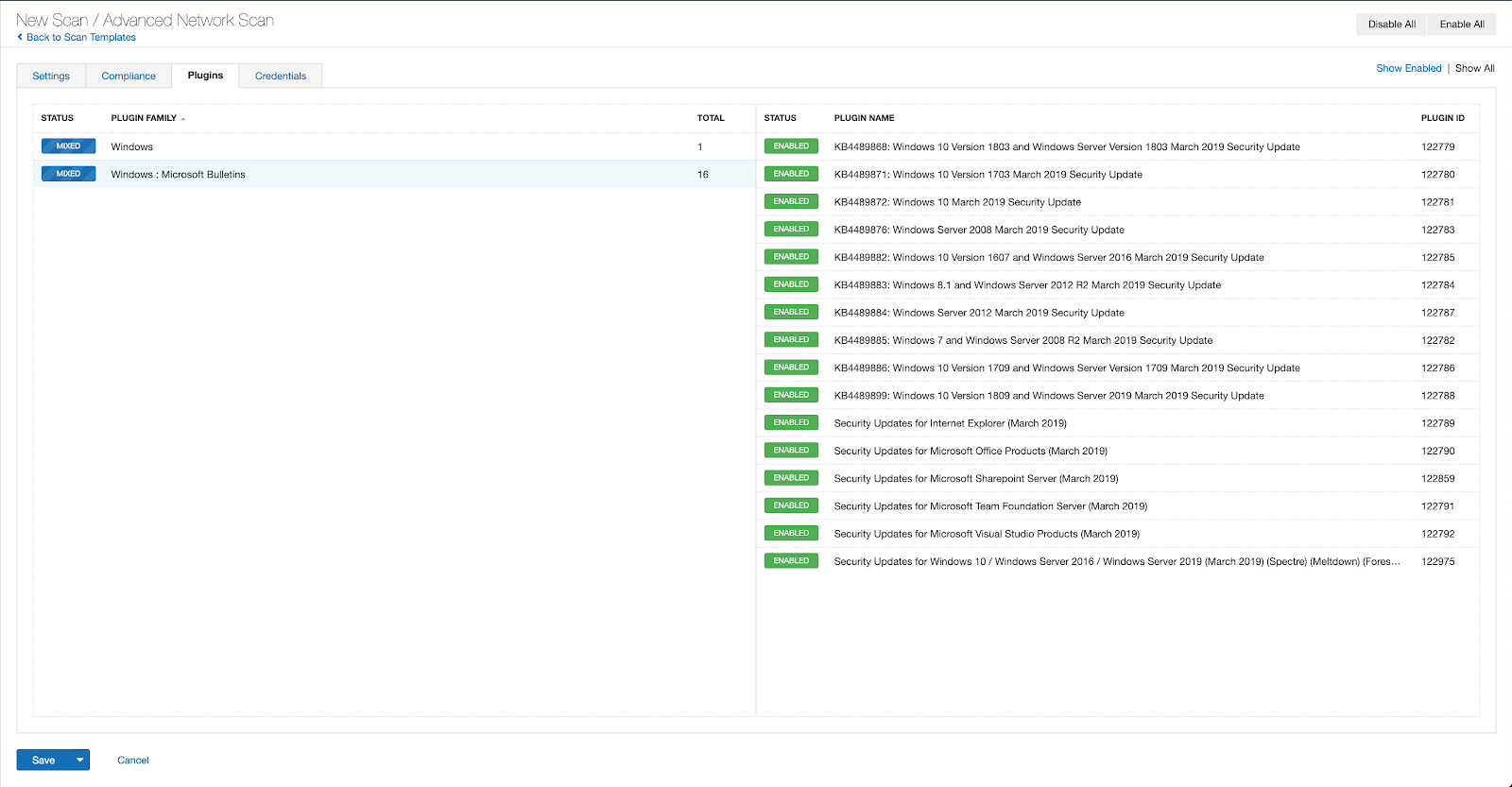Microsoft’s April 2023 Patch Tuesday Addresses 97 CVEs (CVE-2023-28252)

Microsoft addresses 97 CVEs, including one that was exploited in the wild as a zero day
- 7Critical
- 90Important
- 0Moderate
- 0Low
Microsoft patched 97 CVEs in its April 2023 Patch Tuesday Release, with seven rated as critical and 90 rated as important.
This month’s update includes patches for:
- .NET Core
- Azure Machine Learning
- Azure Service Connector
- Microsoft Bluetooth Driver
- Microsoft Defender for Endpoint
- Microsoft Dynamics
- Microsoft Dynamics 365 Customer Voice
- Microsoft Edge (Chromium-based)
- Microsoft Graphics Component
- Microsoft Message Queuing
- Microsoft Office
- Microsoft Office Publisher
- Microsoft Office SharePoint
- Microsoft Office Word
- Microsoft PostScript Printer Driver
- Microsoft Printer Drivers
- Microsoft WDAC OLE DB provider for SQL
- Microsoft Windows DNS
- Visual Studio
- Visual Studio Code
- Windows Active Directory
- Windows ALPC
- Windows Ancillary Function Driver for WinSock
- Windows Boot Manager
- Windows Clip Service
- Windows CNG Key Isolation Service
- Windows Common Log File System Driver
- Windows DHCP Server
- Windows Enroll Engine
- Windows Error Reporting
- Windows Group Policy
- Windows Internet Key Exchange (IKE) Protocol
- Windows Kerberos
- Windows Kernel
- Windows Layer 2 Tunneling Protocol
- Windows Lock Screen
- Windows Netlogon
- Windows Network Address Translation (NAT)
- Windows Network File System
- Windows Network Load Balancing
- Windows NTLM
- Windows PGM
- Windows Point-to-Point Protocol over Ethernet (PPPoE)
- Windows Point-to-Point Tunneling Protocol
- Windows Raw Image Extension
- Windows RDP Client
- Windows Registry
- Windows RPC API
- Windows Secure Boot
- Windows Secure Channel
- Windows Secure Socket Tunneling Protocol (SSTP)
- Windows Transport Security Layer (TLS)
- Windows Win32K

Remote code execution (RCE) vulnerabilities accounted for 46.4% of the vulnerabilities patched this month, followed by elevation of privilege (EoP) vulnerabilities at 20.6%.
CVE-2023-28252 | Windows Common Log File System Driver Elevation of Privilege Vulnerability
CVE-2023-28252 is an EoP vulnerability in the Windows Common Log File System (CLFS) Driver, a logging service used by kernel-mode and user-mode applications. It was assigned a CVSSv3 score of 7.8. This vulnerability is a post-compromise flaw, meaning an attacker could exploit it after gaining access to a vulnerable target. Successful exploitation would elevate an attacker’s privileges SYSTEM. According to Microsoft, it was exploited in the wild as a zero day. Its discovery is attributed to Genwei Wang of Mandiant and Quan Jin withDBAPPSecurity WeBin Lab.
CVE-2023-28252 is the second CLFS Driver EoP vulnerability to be exploited in the wild in 2023, as CVE-2023-23376 was disclosed in the February 2023 Patch Tuesday. It is the fourth known CLFS EoP vulnerability to be exploited in the wild in the last two years, following CVE-2022-24521 from the April 2022 Patch Tuesday and CVE-2022-37969 from the September 2022 Patch Tuesday release. CVE-2022-37969 was also disclosed to Microsoft by Wang and Jin, though it is unclear if there is any connection between both flaws.
CVE-2023-21554 | Microsoft Message Queuing Remote Code Execution Vulnerability
CVE-2023-21554 is a RCE vulnerability affecting Microsoft Message Queuing (MSMQ) with a CVSSv3 score of 9.8. An attacker could exploit this flaw by sending a specially crafted MSMQ packet to an affected MSMQ server. Microsoft’s advisory notes that exploitation of this flaw requires the Windows message queuing service to be enabled. When enabled, TCP port 1801 will be listening on the host.
In addition to this RCE flaw, two denial of service CVEs (CVE-2023-21769 and CVE-2023-28302) rated as “important” were also patched in MSMQ this month.
CVE-2023-28250 | Windows Pragmatic General Multicast (PGM) Remote Code Execution Vulnerability
CVE-2023-28250 is a RCE vulnerability affecting Windows Pragmatic General Multicast (PGM). Successful exploitation requires the MSMQ service to be enabled. An attacker could exploit this flaw by sending a crafted file over the network in order to execute arbitrary code. This vulnerability has a CVSSv3 score of 9.8 and impacts supported versions of Windows including Server Core installations.
CVE-2023-28231 | DHCP Server Service Remote Code Execution Vulnerability
CVE-2023-28231 is a RCE vulnerability affecting the Dynamic Host Configuration Protocol (DHCP) server service. Microsoft rates this vulnerability as “Exploitation More Likely” according to the Microsoft Exploitability Index. With a CVSSv3 score of 8.8, successful exploitation requires an attacker to be on an adjacent network prior to using a crafted RPC call to exploit the flaw.
Microsoft Exchange Server 2013 End Of Life
Microsoft announced that Exchange Server 2013 has reached its end of life. This version of Exchange Server will no longer receive security updates and should be upgraded as soon as possible. Microsoft released guidance to assist customers with decommissioning Exchange Server 2013. As we noted in our 2022 Threat Landscape Report, Microsoft Exchange was a major target in 2022, with at least 10 ransomware groups targeting vulnerabilities affecting the popular mail server. In fact, the ProxyShell chain of vulnerabilities affecting Microsoft Exchange were highlighted in our top five vulnerabilities of the year.
To assist organizations in identifying unsupported versions of Microsoft Exchange Server, the following plugins are available:
- Plugin ID 22313: Microsoft Exchange Server Unsupported Version Detection
- Plugin ID 10880: Microsoft Exchange Server Unsupported Version Detection (Uncredentialed)
Tenable Solutions
Users can create scans that focus specifically on our Patch Tuesday plugins. From a new advanced scan, in the plugins tab, set an advanced filter for Plugin Name contains April 2023.

With that filter set, click the plugin families to the left and enable each plugin that appears on the right side. Note: If your families on the left say Enabled, then all the plugins in that family are set. Disable the whole family before selecting the individual plugins for this scan. Here’s an example from Tenable.io:

A list of all the plugins released for Tenable’s April 2023 Patch Tuesday update can be found here. As always, we recommend patching systems as soon as possible and regularly scanning your environment to identify those systems yet to be patched.
Get more information
Join Tenable’s Security Response Team on the Tenable Community.
Learn more about Tenable One, the Exposure Management Platform for the modern attack surface.

